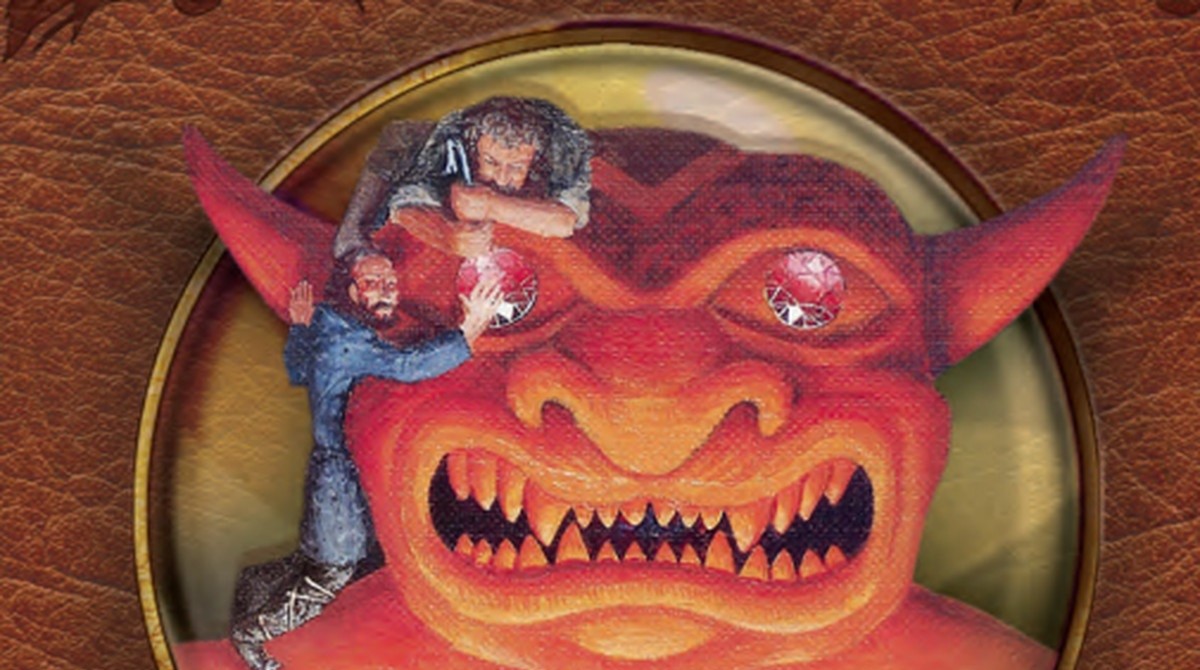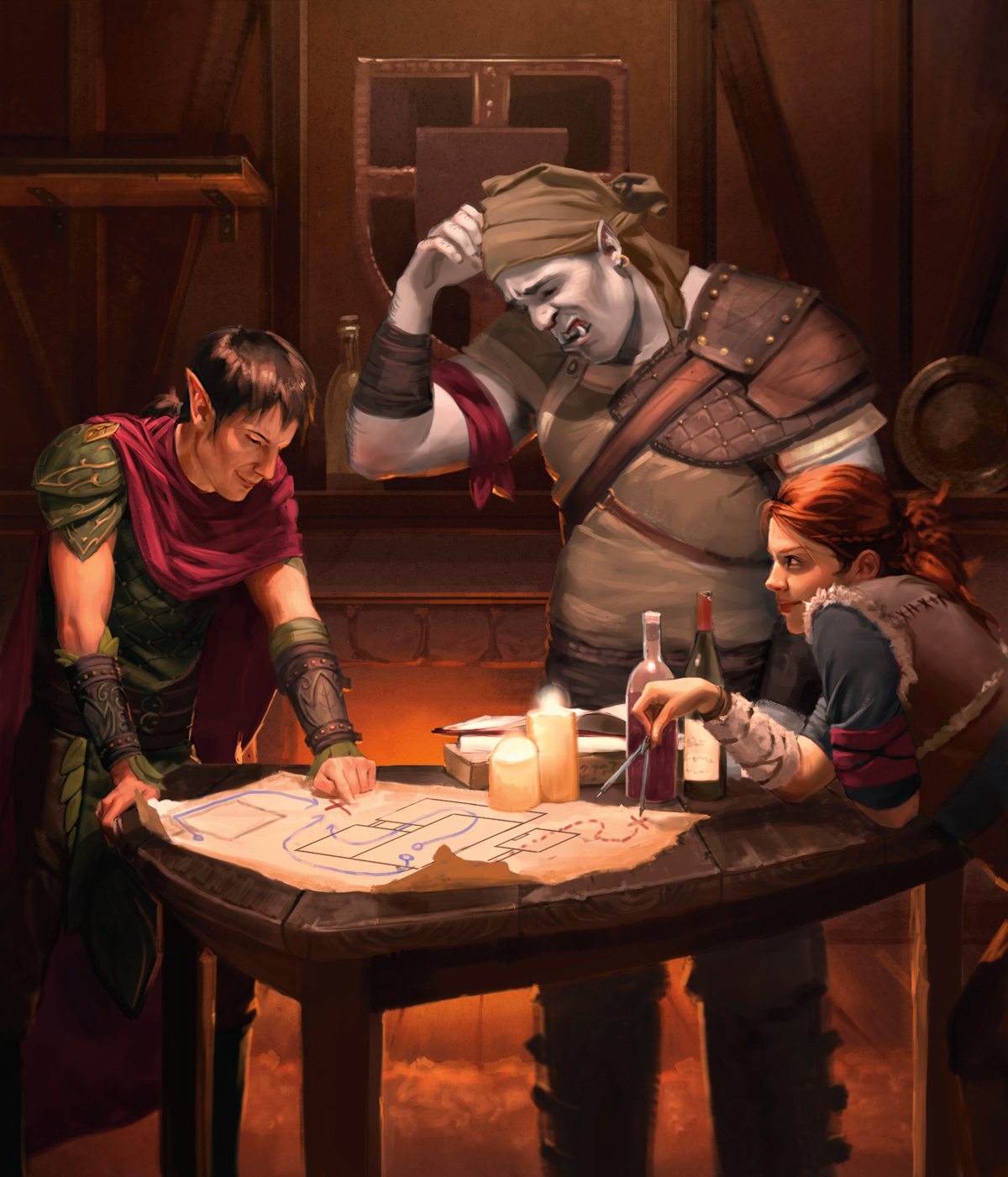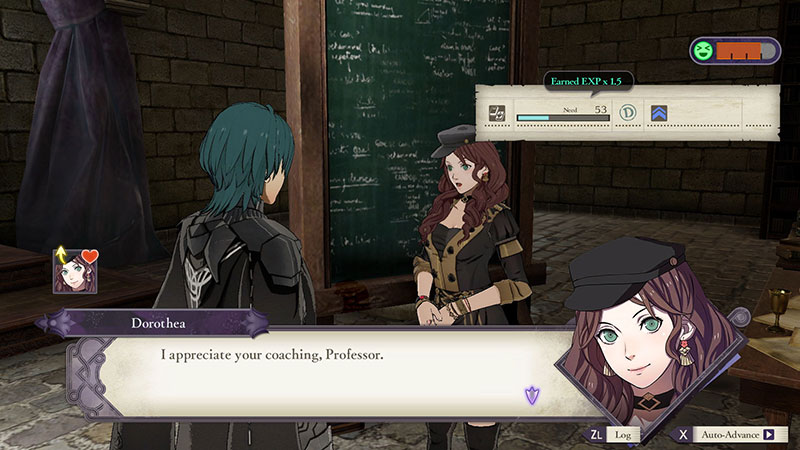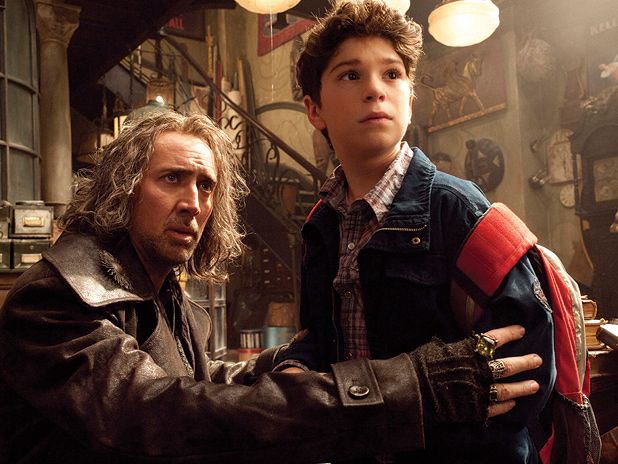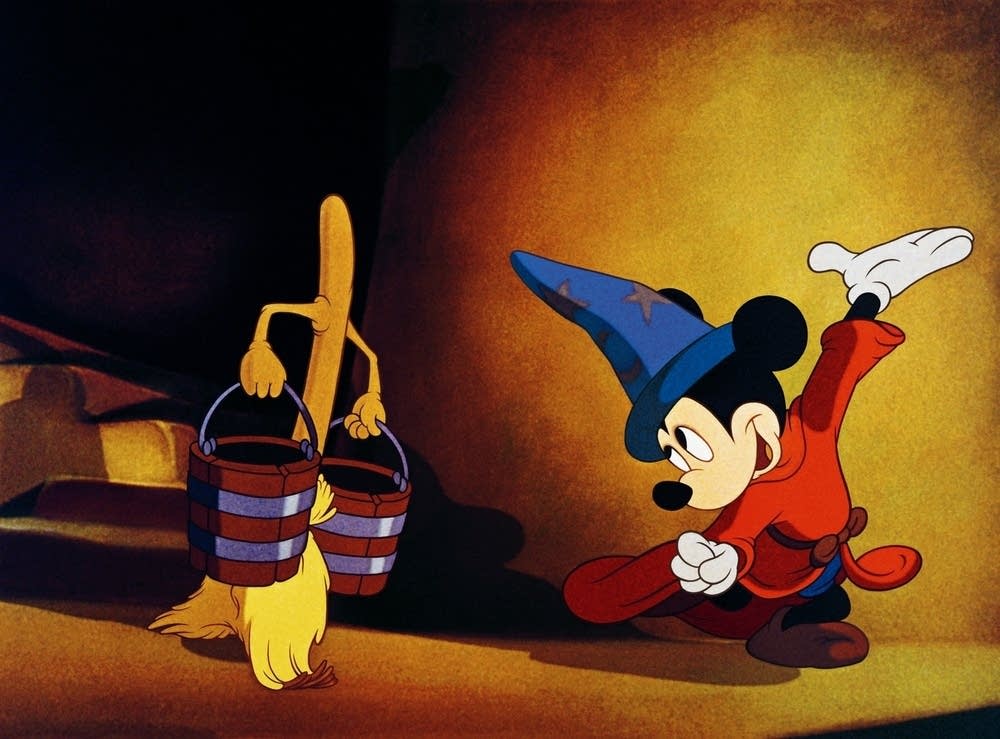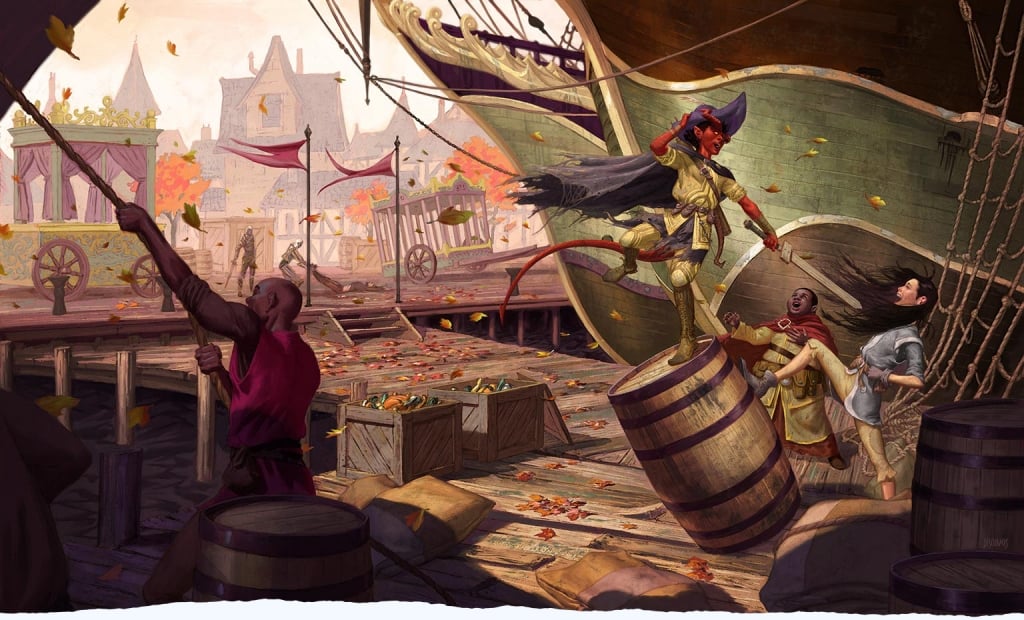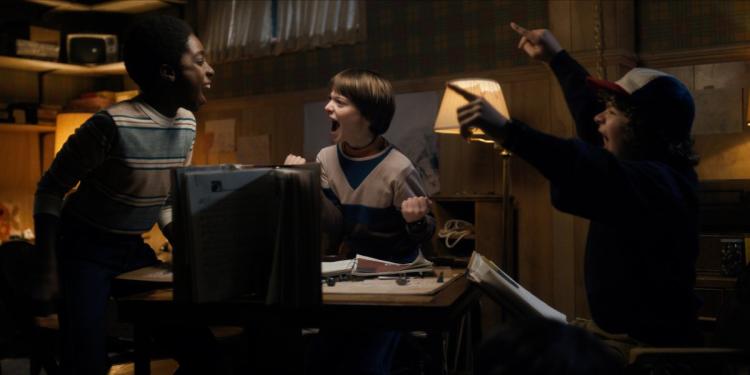D&D: Five Ways Sidekicks Make Your Game Better
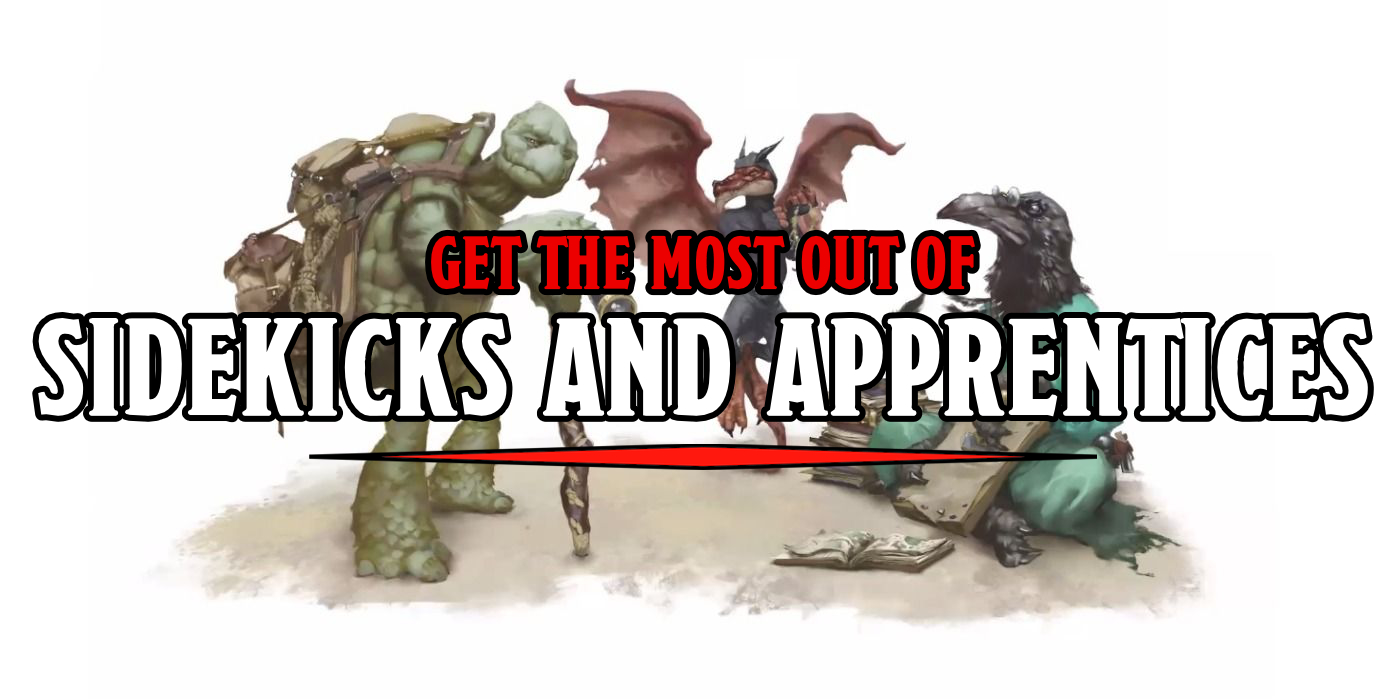

With Tasha’s Cauldron introducing new D&D sidekick rules, here are five reasons having an apprentice gives your game a lasting impression!
What makes a hero feel heroic? Is it the strength behind their attacks? The power imbued within their magic spells? Or is it the mark they leave on the world because of those things?
A good hero or villain changes the world, and in D&D–or any other roleplaying game, really– when the world can react to whatever your characters do. One of the best ways to capture the feeling of fantasy adventures is to show the way the world changes in their wake. It’s a way to bring your player’s actions and effects on the world into view without it feeling forced.
We’re talking about apprentices. Or minions. Or as D&D calls them, sidekicks. But whatever word you use, these companion NPCs are an indispensable resource. Not only do they aid in combat and exploration, but these impressionable D&D sidekicks are perfect for showing how your player characters have had an impact. With the right mindset, you can use NPCs learning and growing to reflect the PC’s personalities and actions in the world.
Make Time And Space For A Change
Let’s start with apprentices. This is a catchall term for relatively minor, recurring NPCs whose lives are influenced by the PCs in a more direct manor. They could be actual apprentices who are meant to be studying directly from the PCs, or a gang of urchins who take what the PCs say and run with it.
Whatever they actually may be, NPC apprentices are basically NPCs that your players can check in with from time to time to see how they’ve developed. These aren’t changes we’d see “on screen.” If we were talking video games, these would be the quests where you make a decision and come back later to see how that’s worked out. Dragon Age: Inquisition and the Assassin’s Creed games where you can send your minions on missions or Fire Emblem Three Houses are great examples of this.
The basic gist goes something like this: an apprentice approaches a PC, the PC gives their apprentice some guidance in the form of an assignment or task to do while the party is out adventuring or doing their own downtime type activities, and then later when the PC checks back in with the impression some kind of meaningful change has happened. That’s a very simple expression with lots of room for complexity.
Teach Your D&D Sidekick A Lesson
One of the best ways to portray this interaction is in roleplay. I call these scenes teaching moments–because they’re moments where the PCs teach something to the NPCs, whether they’re aware of it or not.
A teaching moment can be obvious–like when an apprentice mage comes to talk to their teacher about learning spells. Or it can be obfuscated a little–a street urchin who trusts the PCs coming and asking for advice with a problem, for instance. And if you’re playing one of those games where the PCs already have servants and hirelings, then you can just find teaching moments when they give their hirelings a task. You don’t have to play out the PCs teaching the players directly, but you do want to get a sense of what they’re passing on. Are they encouraging their apprentice to research spells? Or are they good at teaching? Are they encouraging their apprentice to research things or go out into the field and gather ingredients?
Show Your Work
Whatever lessons your PCs are passing on to their Sidekicks, it’s up to you to figure out what changes–and for best results, tie some kind of mechanical consequence to the action. In general you want to look for consequences that reflect the things they’ve learned. These should make a bit of narrative sense–a knight squire sent out into the field to gather potion ingredients might become better at Medicine. A wizard’s apprentice could be encouraged to focus on a particular school of magic or learn certain rituals and could later provide the PCs with access to spells, rituals, or magic items. PCs love having bonuses associated with their actions–it’s a great, tangible reward that emphasizes the effects of the story you’re telling.
If you’ve got the kind of PCs who are likely to laugh at/chide/deride/or make fun of your NPCs, you can make those teaching moments too.
Take care not to make them punishments, of course. Nobody wants to feel like they’ve turned their precious baby D&D sidekicks into collections of useless modifiers because they were playing the game and having fun. But if you had some PCs who never did manage to teach their wizard apprentice magic, it might be fun for the apprentice to be a better thief, for instance. They still get something cool, even if it wasn’t what they thought. Or wasn’t something they even knew they were getting.
Give Your D&D Sidekick A Mission, Write Down The Results
Whatever you’re doing, you’re basically giving your PCs a choice to make for their D&D sidekick. Now all you need are opportunities to have the NPC do something to help the PC.
One great way to do this is to give them some side missions they can do. For instance, if you know your Paladin has a Squire, you might create a situation where the Paladin can use their Squire. Maybe the choice is something like: scout ahead or keep watch. Depending on what they choose, the Squire might get a little better at stealth or perception.
It doesn’t matter what the mechanical consequences are, ultimately, because this isn’t a PC or anyone that needs full stats. They just need bonuses that reflect what they’ve done. You can take a cue from games and name them after the associated event.
Take your NPC and write out traits like “Component Fetcher.” Maybe give a little playful description like:
“After being sent to gather everything from bat guano to more bat guano, this Apprentice has learned to appreciate the beauty of Nature. They have +2 on Nature-related checks.”
Or in the case of our magic-lesson-less wizard apprentice it might be something like: “Self-Reliant”
“Your insistence that your apprentice teach themself has given them the greatest gift: self-confidence. They have a +2 on Charisma saves.”
Leave Time To Shine
If you really want to get involved, give your apprentices tests. Take a moment of time to show the NPC on their own, doing a thing. You don’t have to play it out, but you, the DM, describe what the apprentice is doing. Then have the player roll using the NPC’s stats.
And here’s the real trick–have them gain something whether or not they succeed. If it’s a net positive, great, but they could also gain traits that reflect their injuries or whatever. You want to be real careful when balancing things out. Because if you just pile on negative traits for every decision you, personally, as a DM don’t agree with, then it’s easy to fall in the trap of punishing your players for not thinking like you.
Try to just think of a couple of different options that are cool and you’re golden.
All of this just to say, give your players NPCs, look for ways they can change because of the players. Then find ways to show it. You don’t need a fancy system to do this. Even a +2 to a check can be fun. Or you can turn caring for your NPCs into a mini-game. Either way D&D sidekicks and hangers-on can get some extra depth out of your game.
Happy Adventuring!

